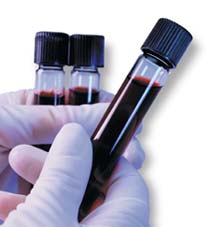 If you are like many other doctors or students interested in nutrition, you must be able to determine when you should adjust physically or when a chemical adjustment is needed to keep that physical adjustment in place. Whether it is from
If you are like many other doctors or students interested in nutrition, you must be able to determine when you should adjust physically or when a chemical adjustment is needed to keep that physical adjustment in place. Whether it is from
• a high sugar diet causing midthoracic pain,
• a thyroid imbalance causing neck pain,
• a pituitary condition causing headaches,
• or a patient’s being just plain overweight from the wrong diet, which is resulting in low back pain,
how you distinguish what to do is what makes you an expert.
Using a saw (physical adjustment) when a hammer (nutritional protocol) is the tool of choice will not benefit you or your patient. So how do you determine the cause, be it physical or biochemical? More importantly, once you determine that this is a nutritional problem rather than a physical problem, how do you now determine if your patient has a problem with diet, or with an organ or glandular malfunction.
For example, if a patient has a high cholesterol, how do you distinguish if it is a dietary problem or an endocrine imbalance with the liver, adrenals, gonads, thyroid, or from a mid thoracic (T4-T9), or a vagus or phrenic nerve irritation? Or, if a patient comes in complaining of fatigue, is it because of a much-needed upper cervical adjustment, or is the patient suffering from a liver, pancreatic, adrenal, or immune system weakness?
The only method that I know of to determine the difference is a blood test. A blood test is:
1. a sound practice procedure to diagnose chemical imbalances in the body,
2. embraced by other professions,
3. considered rational with scientific data to back up the findings,
4. objective rather then subjective,
5. and it can be duplicated and is reproducible!
I have been utilizing biochemical blood chemistry evaluations for over 25 years and have written a 600-page book on the subject. I’ve also developed a software program that saves time and helps pinpoint any chemical imbalances in the body along with a recommended diet and nutritional program.
So, if you are looking for a great nutritional diagnostic tool and want to be an expert in nutrition instead of dabbling in it, then I suggest that you learn more about blood chemistry analysis and nutritional protocol.
For more information on Dr. Cima and the many books he has written, you may visit his web site at www.cimasystem.com. For software information, visit http://www.famtech.com/CBA/web/splash.htm.
